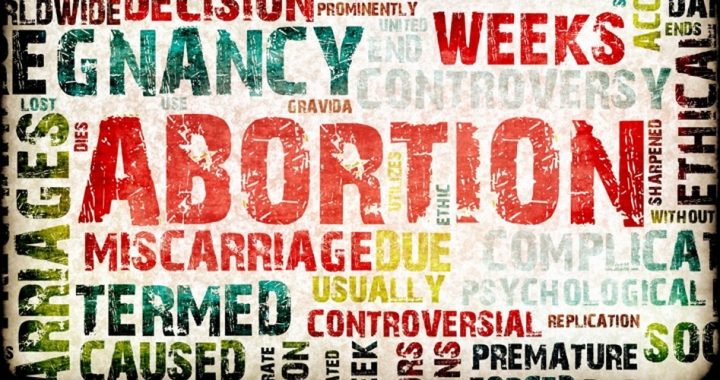
Podcast: Play in new window | Download ()
Subscribe: Android | RSS | More
California Governor Gavin Newsom signed into law a bill that forces colleges to provide free abortions on campus, despite pushback from colleges, the state finance department, and pro-life groups.
SB 24 requires all student healthcare services clinics on a California State University or University of California campus to offer abortion by medication. It requires the Commission on the Status of Women and Girls to administer the College Student Health Center Sexual and Reproductive Health Preparation Fund, which is established by the bill and funded under the bill. The new law affects 34 college campuses.
Under the new law, the affected college campuses will be required to provide medical abortions, which involve taking two pills over the course of two days within the first 10 weeks of pregnancy to induce a miscarriage. Chemical abortions differ from the “morning after” pill in that medical abortion pills terminate confirmed pregnancies, while the morning-after-pill is a birth control pill with higher doses of the hormones necessary to delay or prevent the release of an egg to avoid fertilization.
California’s Assembly passed the bill in September by a vote of 55-19, sending it to Newsom’s desk for signature.
Opponents to SB 24 assert it creates safety concerns, as medical abortions are not without risk.
“These Toilet Bowl Abortions would create havoc on campuses, as girls are sent to their dorm bathrooms to bleed and pass an aborted infant in a toilet, without medical supervision or assistance,” Students for Life of America (SFLA) President Kristan Hawkins said.
CBN News notes the FDA has documented “at least 4,000 cases of serious adverse events, including more than 1,000 women who required hospitalization” after taking the chemical abortion pill covered under this legislation. Additional biological, behavior, and biochemical effects are also observed in women who have had abortions, according to a three-year study by Franciscan University of Steubenville psychologists and a medical school professor and Ph.D. student in Chile’s Universidad San Sebastián, Conceptión, and published in Frontiers in Neuroscience. SB 24 does not require pre-abortion or post-abortion counseling for women obtaining abortions, nor does it offer maternal assistance to those who ultimately decide against an abortion.
NBC News reports that Maria Jose Fernandez, legislative advocate for the California Catholic Conference, believes the law is “trying to limit the alternatives for women.”
“We’re giving them the option to terminate a life, but what about those who want to continue on with that pregnancy? Where is the help for those women?” Fernandez said.
The Family Research Council also observes SB 24 creates ethical issues as it does not offer conscience exemptions for college health center staff who may object to providing the abortion pills.
Governor Newsom’s Department of Finance announced its opposition to SB 24 in August, citing “significant” costs generated by the measure. Though lawmakers hope to collect approximately $10 million in private donations to help campuses set up their abortion facilities, the Finance Department believes it is unlikely there will be enough private donations to fully fund the program, thereby leaving students and taxpayers to pay for the abortions.
“While this bill and its sponsors indicate that private financing would cover all the costs associated with this bill, Finance notes this bill could create future General Fund cost pressures to the extent sufficient private funding cannot be raised to support readiness grants, the costs to comply with this bill’s requirements exceed the proposed grant funding, or to the extent the UC and CSU incur ongoing costs after January 1, 2023,” the Department of Finance reported.
The University of California and the California State University systems also raised concerns over costs, CBS 13 Sacramento reports. According to the bill, all participating student health centers would require training, an ultrasound machine, and a nurse hotline, but the school systems contend these requirements create significant financial burdens.
“Beginning January 1, 2023, no source of funding is provided in SB 24. Without funding, the student health centers will incur ongoing costs in the range of $2.2 to $3.2 million annually,” UC states. “Unless financing is made available post 2023, by the state or foundation, this cost will fall to students.”
California State University outlined numerous cost-related concerns as well, specifically costs related to equipment, as ultrasound machines are approximately $37,000; training costs, estimated to be approximately $10,000 per campus; hospital agreements to allow for admission privileges, particularly as CSU students are not required to have insurance, making it unclear who would be responsible for costs related to emergency room visits; costs related to moving to a billing system, since CSU does not currently bill insurance; and liability under CSU’s existing health malpractice insurance, as CSU would be responsible for the first $5 million of costs related to SB 24 under their insurance.
Still, both systems were careful not to take a stand against the bill, NBC News reports.
However, it is those very concerns that likely kept campuses from offering abortion services, instead referring students to outside providers.
When a similar bill passed the California Assembly in 2018, it was vetoed by then-governor Jerry Brown, who, while pro-abortion, recognized the bill as an unnecessary burden on the school systems.
“According to a study sponsored by supporters of this legislation, the average distance to abortion providers in campus communities varies from five to seven miles, not an unreasonable distance,” Governor Brown said at the time. “Because the services required by this bill are widely available off-campus, this bill is not necessary.”
Newsom, however, claims the law is needed “as other states and the federal government go backward, restricting reproductive freedom.”




